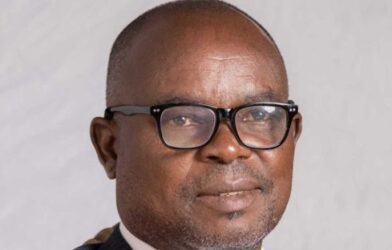It is generally said that the court of law is the last hope of the common man. This proved to be real with the very recent intervention of the Court of Appeal, Abuja division, which fundamentally re-established the fact that all hopes are not lost on the increasingly dwindling popularity and the place of the court system in the perception, opinion and respectability of the good people of Nigeria when the Appellate court totally demolished a clearly illegal, unconstitutional and reckless decision of the federal High Court to attempt to deprive the good people of Rivers state of their constitutionally guaranteed allocations from the federation account.
The Court of Appeal’s decision on December 13, 2024, to overturn the Federal High Court’s order halting the release of Rivers State’s federal allocation is a significant milestone for Nigeria’s democracy. The judgment not only upholds the principles of federalism but also reasserts the sanctity of the judiciary as a neutral arbiter in political disputes. This ruling is a reminder of the judiciary’s critical role in ensuring justice and fairness, even amidst the turbulence of political intrigues and power tussles.
The Court of Appeal’s ruling decisively quashed the Federal High Court’s decision, which sought to cripple Rivers State’s governance by halting its statutory allocations. Justice Joyce Abdulmalik’s judgment, delivered in October 2024, restrained the Central Bank of Nigeria (CBN) and the Accountant General of the Federation from releasing funds to Rivers State on the grounds that the 2024 budget was purportedly invalid.
Led by Justice Hamman Barka, the Appeal Court emphasized that the Federal High Court lacked jurisdiction to entertain the case. Justice Barka underscored the principles of judicial restraint, stating that issues concerning state appropriations are the exclusive purview of state high courts. This decision affirms the autonomy of state institutions within Nigeria’s federal structure and protects Rivers State’s people from the fallout of politically motivated litigation.
The Appeal Court’s ruling carries profound implications for Nigeria’s constitutional democracy. By overturning Justice Abdulmalik’s judgment, the Court has reaffirmed that the judiciary must remain above political manipulations. This judgment reinforces the constitutional principle of federalism by clarifying the separation of powers between state and federal jurisdictions. It ensures that state matters, such as appropriations, are handled within the appropriate legal frameworks.
The initial ruling would have plunged Rivers State into financial and administrative chaos, affecting millions of residents. The Appeal Court’s intervention restores stability, allowing the state government to fulfill its obligations to the people. The implications of this decision resonate beyond Rivers State, highlighting the judiciary’s role as the last line of defense for democratic governance and constitutional order.
The Rivers State saga exposes a worrying trend of judicial complicity in political disputes. Justice Abdulmalik’s ruling, which disregarded established jurisdictional limits, raises serious questions about judicial accountability. It is imperative that the National Judicial Council (NJC) takes decisive steps to address such breaches of judicial ethics and competence.
The NJC, as the primary regulatory body for judicial officers, must intensify its oversight functions. Judges who issue rulings that contravene legal principles or constitutional provisions should face thorough investigations and, where necessary, disciplinary actions. For instance, Justice Abdulmalik’s decision to entertain a case beyond her court’s jurisdiction reflects either a lack of competence or deliberate bias. The NJC should initiate a review of her conduct to determine whether sanctions are warranted.
Regular training and workshops for judges on constitutional law, jurisdictional boundaries, and ethical standards are essential. Continuing Legal Education (CLE) programs can help judges navigate complex cases without succumbing to political pressures or misinterpreting the law. These programs should emphasize the importance of judicial impartiality and the broader implications of their rulings on democracy and governance.
To expose undue influences on judicial officers, the NJC could establish a confidential whistleblower mechanism. This system would allow concerned parties, including court staff and legal practitioners, to report instances of judicial misconduct or external interference without fear of reprisal.
The NJC should publicize its disciplinary actions against erring judges to deter misconduct and restore public confidence in the judiciary. For instance, if Justice Abdulmalik’s actions are found to have violated judicial ethics, the NJC’s findings and decisions should be made available to the public.
The power struggle in Rivers State highlights the dangers of allowing political disputes to escalate into constitutional crises. Former Governor Wike’s alleged attempts to undermine Fubara’s administration through legal and legislative maneuvers demonstrate the perils of unchecked political ambitions.
The defection of lawmakers, which contributed to the legislative impasse in Rivers State, underscores the need for stronger political party discipline. Parties must establish clear guidelines and consequences for defections to maintain stability and prevent opportunistic alliances that disrupt governance.
Political disputes, such as the Wike-Fubara feud, should be resolved through dialogue and mediation rather than litigation. Civil society organizations and elder statesmen can play a crucial role in facilitating negotiations to prevent political conflicts from escalating.
The Appeal Court’s judgment reiterates the importance of respecting the separation of powers. Political actors must avoid encroaching on the functions of other branches of government, as such actions undermine democratic governance.
The Rivers State case serves as a cautionary tale for Nigeria’s democratic institutions. It underscores the need for vigilance in protecting the judiciary from becoming a tool for political machinations. The NJC’s proactive engagement in addressing judicial misconduct and ensuring adherence to constitutional principles is essential for the health of Nigeria’s democracy.
Legal authorities support the Appeal Court’s judgment. In A-G Lagos State v. A-G Federation (2004), the Supreme Court emphasized the autonomy of states within the federal structure, ruling that federal intervention in state matters must be strictly limited. Similarly, in Lakanmi v. A-G Western Nigeria (1971), the court highlighted the dangers of overstepping jurisdictional boundaries, warning against the misuse of judicial power.
The Appeal Court’s decision aligns with these precedents, reinforcing the judiciary’s role as a defender of constitutional order and the rule of law. Furthermore, this ruling underscores the necessity of a judiciary that is both independent and adequately resourced. To this end, stakeholders must advocate for the financial autonomy of the judiciary to insulate it from undue pressures and influence.
The judiciary must not only be impartial but also be perceived as such by the public. Transparency in judicial processes, from case management to the delivery of judgments, is key to building trust. The media and civil society must play their part by educating the public on judicial matters, fostering an informed citizenry capable of holding institutions accountable.
The Appeal Court’s ruling is a victory for Rivers State and a triumph for Nigeria’s democracy. It underscores the need for an independent and accountable judiciary, free from political interference. However, this judgment also serves as a wake-up call for the NJC and other stakeholders to address the systemic issues that allow judicial misconduct to persist.
As Nigerians celebrate this landmark decision, it is imperative to remain vigilant in protecting the integrity of democratic institutions. Political actors must prioritize governance over personal ambitions, and the judiciary must steadfastly uphold the principles of justice and equity. Only then can Nigeria’s democracy thrive in the face of challenges, ensuring a brighter future for all citizens.
The broader lessons from the Rivers State case extend to all arms of government. While the judiciary must remain resolute in its independence, the legislative and executive branches must also play their roles responsibly. Politicians must refrain from exploiting legal loopholes to further their agendas, while the legislature should enact laws that strengthen institutional safeguards.
Ultimately, this judgment is a call to action for all Nigerians to uphold democratic values. Civic education campaigns that emphasize the importance of constitutional principles and the rule of law are necessary. Empowering citizens with knowledge about their rights and responsibilities can foster a culture of accountability and transparency across all sectors.
The Rivers State saga is a microcosm of the challenges facing Nigeria’s federal democracy. It underscores the urgency of reforms that prioritize institutional integrity and public trust. As the nation moves forward, the commitment to justice, fairness, and equity must remain unwavering. These principles are the foundation upon which a resilient and prosperous Nigeria can be built.
Now, the good people of Rivers state together with their amiable governor have been reassured that equity, justice and fairness are virtues that are still be upheld by the courts of competent jurisdiction and the Appeal Court’s judgment should be used as a litmus test to subject judges of the federal High Court who provide judicial support to political warlords to the highest scrutiny and sanctioned administratively to serve as deterrent for future misadventures by any of the judges who hibernate with politicians. The court must remain the temple of justice that it is.
Emmanuel Onwubiko Writes From Abuja.













Comments are closed